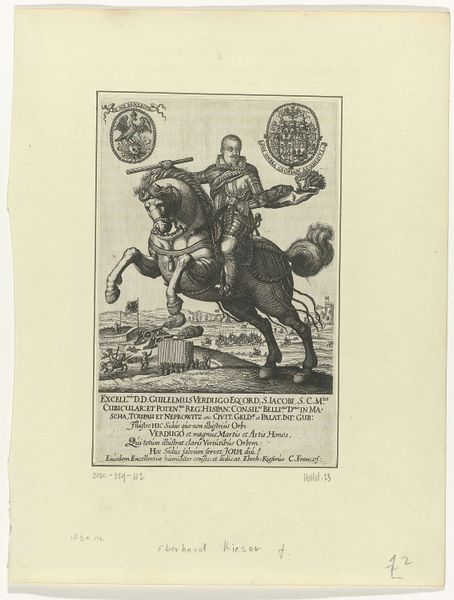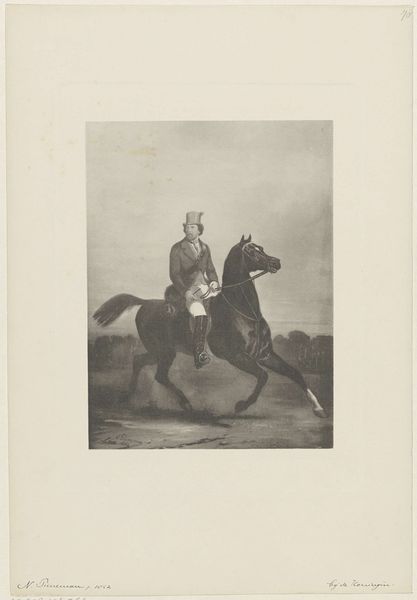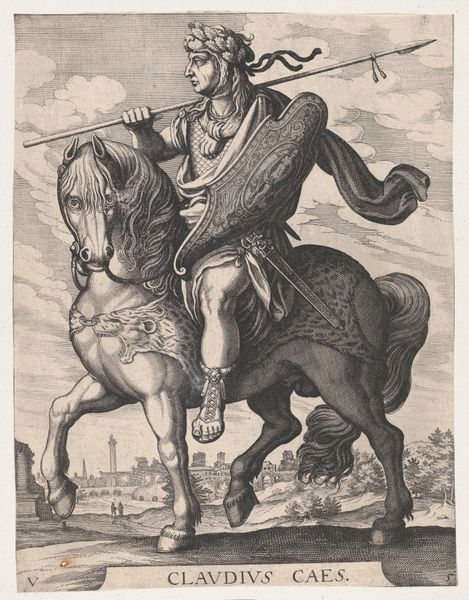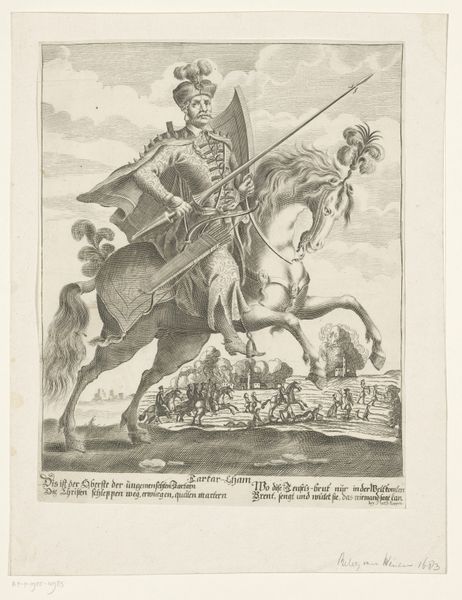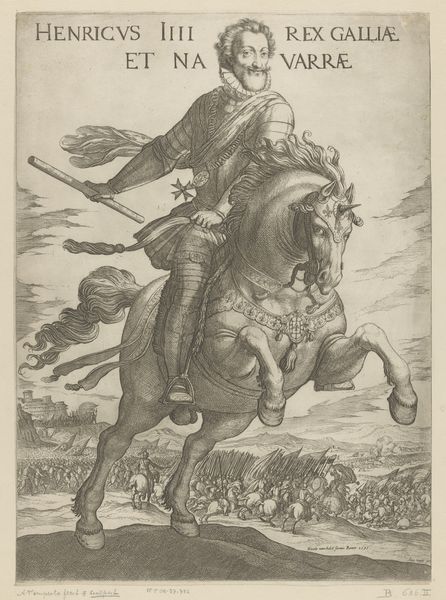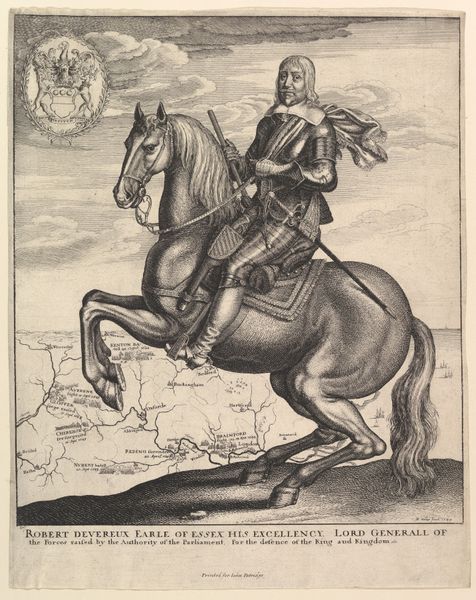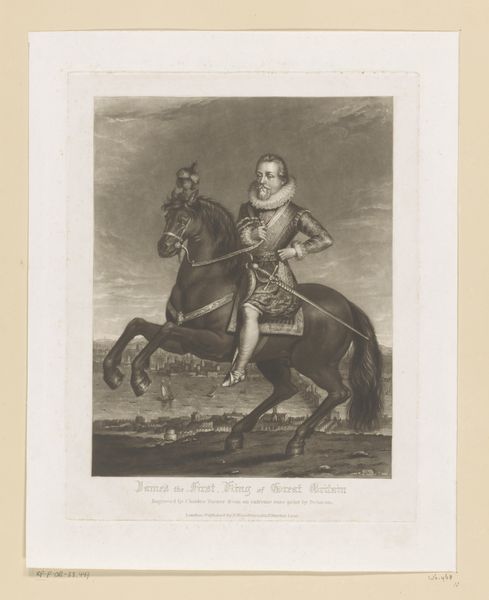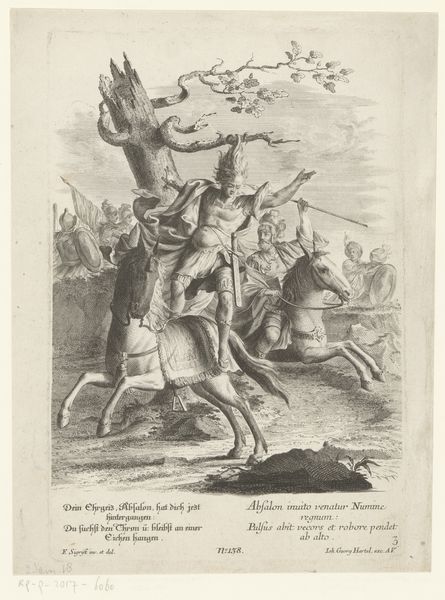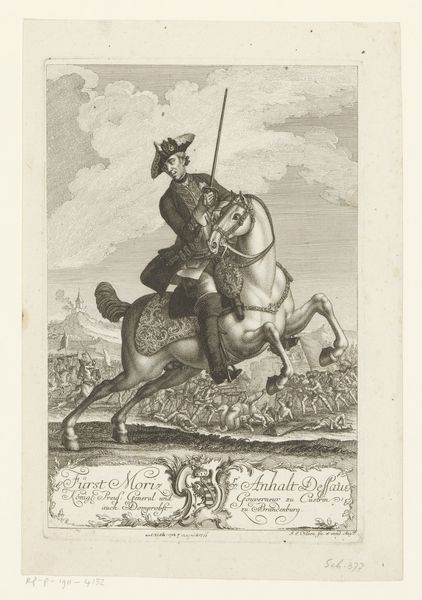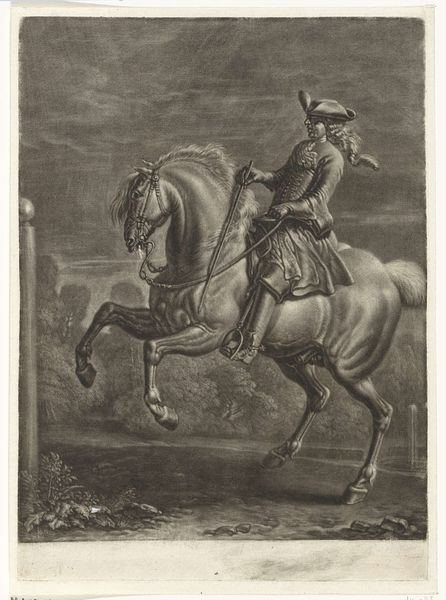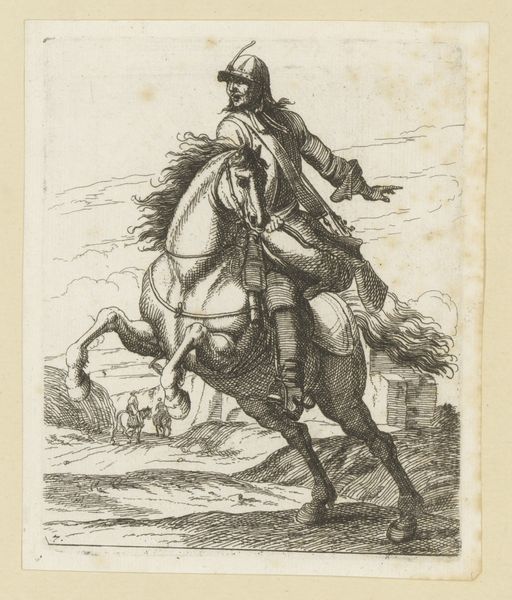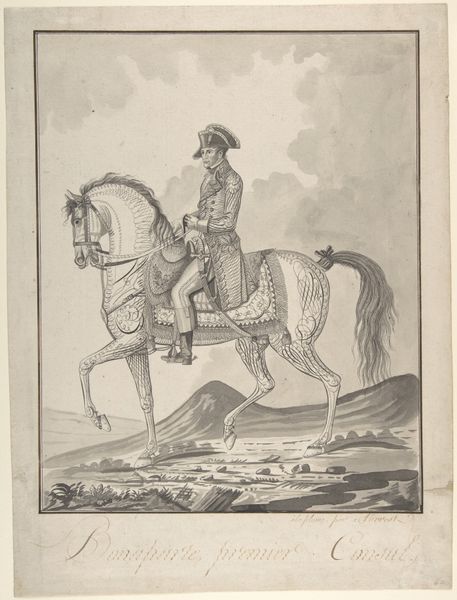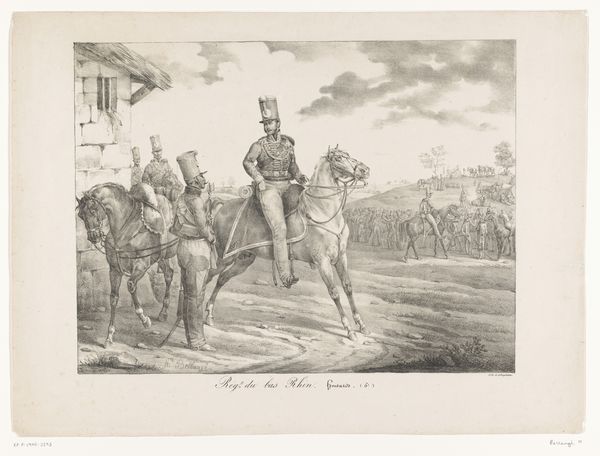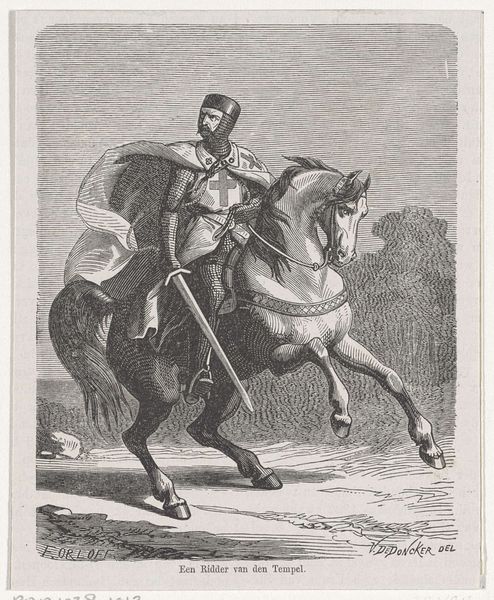
print, metal, engraving
#
portrait
#
baroque
# print
#
metal
#
old engraving style
#
figuration
#
line
#
history-painting
#
engraving
#
realism
Dimensions: height 327 mm, width 240 mm
Copyright: Rijks Museum: Open Domain
This is Jacob van der Heyden's "Equestrian Portrait of Gustaf II Adolf, King of Sweden," an engraving made sometime between 1631 and 1645. It depicts the King mounted on a horse, confidently holding a baton, a symbol of military command. During the 17th century, royal portraiture was more than just representation; it was deeply intertwined with the construction of power and identity. Van der Heyden situates Gustaf atop a map, visually linking the ruler to his territory and dominion. The text accompanying the portrait lists his titles, reinforcing his authority and the extent of his realm. Consider the emotional weight of this image: the king as a heroic figure, stoic and in control. It's a carefully constructed representation designed to inspire loyalty and project an image of invincibility, at a time of continuous religious conflict and war in Europe. Ultimately, this portrait serves as a reminder of how art can reflect and shape our perceptions of power, leadership, and national identity. It invites us to reflect on how we construct and perpetuate notions of authority in our own time.
Comments
No comments
Be the first to comment and join the conversation on the ultimate creative platform.
